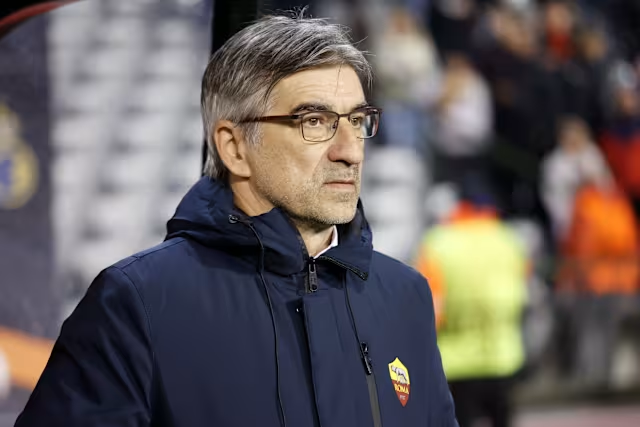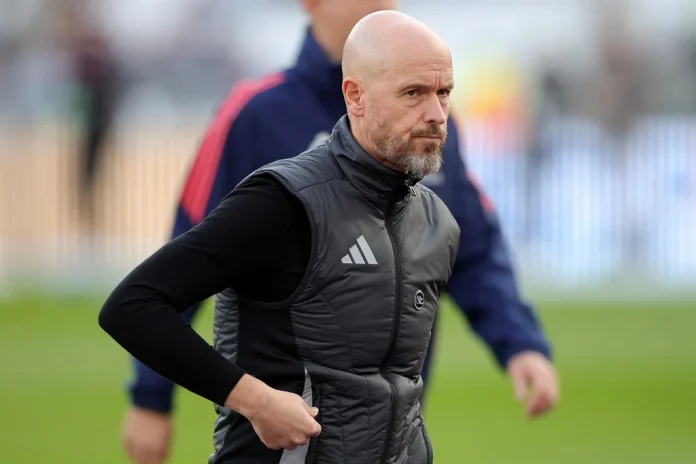The football world is buzzing with news of Erik ten Hag’s decision to decline an offer from AS Roma, despite the club’s active pursuit of a capable manager to lead them through a challenging season. Roma’s American owners, Dan and Ryan Friedkin, reportedly met with the former Manchester United boss in London, hoping to entice him to join the Giallorossi. However, for ten Hag, the allure of a new job in the Italian capital wasn’t enough to sway him toward the turbulence that currently engulfs AS Roma.
With his recent experience at Manchester United still fresh, ten Hag’s rejection of the offer appears to be a calculated decision to avoid jumping into yet another uncertain situation. Having left United after a difficult tenure that was marked by mixed results and management challenges, ten Hag seems to be choosing carefully where he’ll make his next move.
AS Roma’s Turbulent Season: The Search for Stability Continues
AS Roma is in the midst of one of their most turbulent seasons in recent history, already seeking their third manager since the start of the 2024-25 season. The club’s ownership has been proactive yet indecisive, resulting in the recent sackings of Ivan Juric and Daniele De Rossi. De Rossi, a Roma legend, was dismissed following a disappointing start to the season, and while he remains under contract until 2027, the Friedkin family has ruled out his return as a feasible option.

Now on their third managerial search, AS Roma is finding it difficult to secure a leader who can navigate the ship through the choppy waters of Serie A. The club’s struggles have raised questions about its long-term planning and strategic direction, leading many to wonder if Roma’s issues go beyond managerial choices and stem from fundamental instability within the organization.
Why Erik ten Hag Said “No” to Roma
Erik ten Hag, known for his disciplined and structured approach to management, reportedly met with Roma’s owners in London, but ultimately chose to pass on the offer. His experience with Manchester United, another club grappling with identity and organizational challenges, might have played a role in his decision. United’s management struggles and the intense scrutiny of his tenure likely left ten Hag with little appetite for jumping into another chaotic environment.
Instead, ten Hag appears to be weighing his options carefully, mindful of finding a role that aligns with his values and allows him to work with a club that offers stability and a clear vision. At United, ten Hag dealt with issues ranging from poor VAR decisions impacting critical matches to pressures from an underperforming squad, and the challenges of managing a club with high expectations but inconsistent support. For ten Hag, AS Roma’s current disarray could present too much of a risk.
The Contenders: Who Could Be Roma’s Next Coach?
With ten Hag and Graham Potter out of the running, AS Roma has a limited pool of candidates to consider, yet several familiar names have emerged as potential options. Here’s a closer look at some of the managers linked to the club’s vacant position:
- Rudi Garcia: Garcia, who previously managed Roma from 2013 to 2016, is familiar with the club’s inner workings and Italian football culture. His tenure with Roma saw a mix of successes and setbacks, but he could offer a stabilizing presence that the Friedkin family may find attractive.
- Roberto Mancini: Currently the head coach of the Italian national team, Mancini’s experience and knowledge of Serie A could make him an ideal candidate. His leadership abilities and tactical acumen are well-documented, though convincing him to leave his current role could prove challenging.
- Massimiliano Allegri: Allegri is another experienced coach with a proven track record in Italy. Having managed Juventus and AC Milan, he understands the demands of Italian football. However, Allegri is known to be selective about his next role, which may complicate Roma’s chances of securing his services.
- Vincenzo Montella: The former Fiorentina and AC Milan boss has a history with Roma, having played for the club during his career. Montella’s familiarity with the organization could work in his favor, though his coaching record in recent years has been inconsistent.
- Claudio Ranieri: Ranieri is an iconic figure in Italian football, with vast experience managing both in Italy and abroad. A return to Roma for Ranieri would mark yet another homecoming, though it remains to be seen if he has the appetite for a short-term managerial stint at his age.
Each of these candidates offers different strengths and potential drawbacks, and the decision for Roma’s owners will hinge on who they believe can handle the pressure of managing a high-profile team under challenging circumstances.
The Broader Implications: Ten Hag’s Decision Reflects Managerial Trends
Ten Hag’s refusal of AS Roma’s offer sheds light on a broader trend among top managers in Europe. Coaches at this level are becoming increasingly cautious about the positions they accept, as they understand that joining a club in disarray could have long-term impacts on their reputation and career trajectory. For ten Hag, who has established himself as a respected tactician, taking on a role at a struggling club like Roma would require assurances that the environment would allow him to implement his vision and system effectively.
Roma’s chaotic start to the season reflects a growing pattern in football where clubs in high-stakes leagues make rapid managerial changes in response to performance issues, rather than addressing underlying organizational problems. The Friedkin family’s search for a new manager exemplifies this trend, as they hope that the right managerial hire will solve the club’s struggles. However, as many football experts point out, real change often requires a more comprehensive strategy that goes beyond a quick coaching swap.
What’s Next for AS Roma and Erik ten Hag?
With Roma continuing their managerial search and ten Hag biding his time, both parties face uncertain futures. For Roma, the decision over their next coach will be critical, as they need someone capable of providing stability and revitalizing the team’s performance. Their current situation requires a manager who is not only tactically sound but also resilient and able to manage the inherent pressures of coaching a team in crisis.
As for ten Hag, his decision to turn down Roma signals his intent to avoid chaotic environments and focus on opportunities that align with his managerial style. While his tenure at Manchester United may have ended prematurely, his reputation remains strong, and he is likely to be selective with future roles. He may find that waiting for a stable, well-supported team is worth the patience.
In the ever-volatile world of football management, the AS Roma saga is a reminder of the challenges that clubs face in building sustainable success. While the club searches for the right leader, ten Hag’s decision underscores the importance of strategic fit and stability for managers looking to build successful, long-lasting careers.
READ NEXT:


